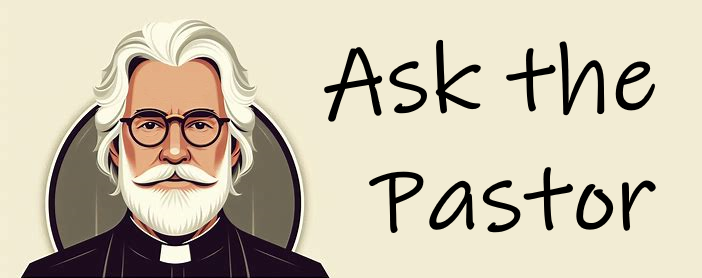In answering this question, Pastor Kaspar notes, “The pastor serves in the stead and by the command of Christ Jesus and is a sinner in need of forgiveness, just like the people he serves. When he hears the confession and absolution, he both delivers and receives those words. The pastor preaches to edify the people of which he is one. Similarly, pastor serves the body and blood of Christ under bread and wine to the people for the forgiveness of sins, life, and salvation. It follows that he also receives this blessing from the hand of the pastor.”
Others answer that congregation may receive the Lord’s body and blood from the hands of one who has received forgiveness through the same gift.
Many of us have been in churches that practice all sorts of orders. The older practice is for the pastor to self-commune. This practice goes back to the second century. Martin Luther accepted this practice. In his Latin Mass of 1523, he writes, “Then, while the Agnus Dei [Lamb of God] is sung, let him communicate, first himself and then the people.” In the Augsburg Confession, article 24, Melanchthon implies the historic order.
The LBW, the green book which we use, specifies this in rubric 35 on page 71. “The presiding minister and the assisting ministers receive the bread and wine and then give them to those who come to receive.” The newer Lutheran Service Book is more explicit, “The pastor and those who assist him receive the body and blood of Christ first, the presiding minister communing himself and his assistants. Then they distribute the body and blood to those who come to receive.”
© Patrick K Welton
